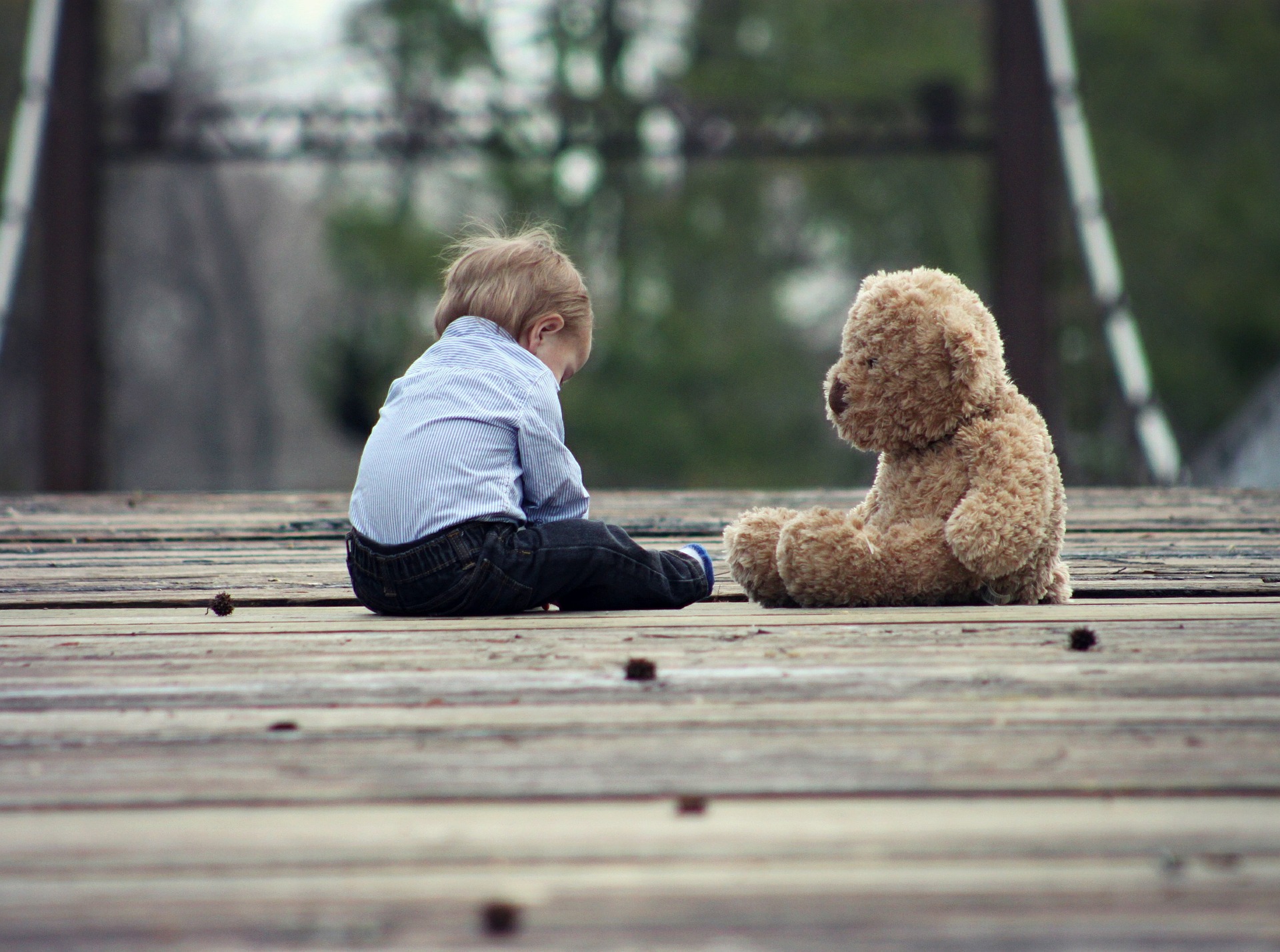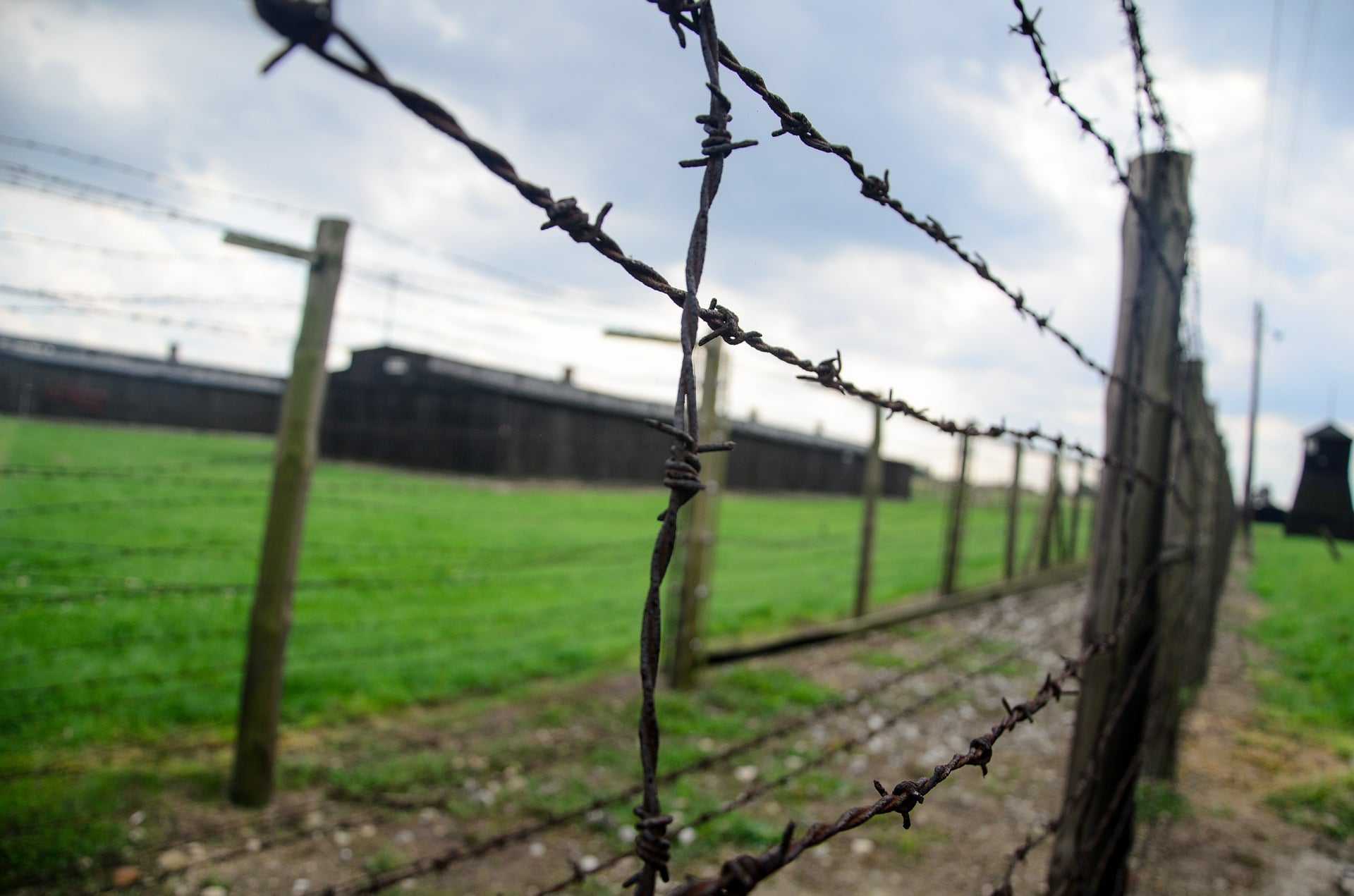See, I have set before you this day life and goodness, and death and evil; in that I command you this day to love G-d, to walk in His ways and to keep His commandments…
Life and death I have set before you, the blessing and the curse. And you shall choose life…
Deuteronomy 30:15-19
With these verses, the Torah establishes what Maimonides calls “a fundamental principle [of the Jewish faith] and a pillar of the Torah and its commandments” 1—the concept that man possesses the capacity to freely choose his path through life.
However, the concept of “free choice” seems to contradict another fundamental principle of the Jewish faith—the belief in the ultimate triumph of good. 2 Indeed, this apparent contradiction can be discerned in the very verses which establish the concept of free choice. After stating, “I have set before you life and goodness, and death and evil,” and “Life and death I have set before you, the blessing and the curse,” the Torah proclaims: “And you shall choose life.” What is meant by these concluding words? Are they a commandment? A promise? A statement of fact? In any case, the Torah has no doubts about the ultimate outcome of man’s choice between good and evil. “In the end of days,” prophesies Moses, “you will return to the L-rd your G-d and you will obey His voice.” 3 No matter to what moral and spiritual depths we may fall, no matter how far we may stray from the fulfillment of our purpose, “G-d … devises means that the forsaken one be not forsaken.” 4 Ultimately, we will all rectify our wrongs and restore the innate perfection of our souls. How is this to be reconciled with the “fundamental principle” of free choice?
The same question could be asked on the cosmic level. The purpose of creation is that man should bring to light the innate goodness and perfection that has been invested within his own soul and in all of existence by the Creator. The ultimate realization of this purpose is the era of Moshiach, described by the prophets as a world free of evil and strife—a world in which man has overcome ignorance, jealousy and hatred to bring about the harmonious world that G-d envisioned at creation and outlined in the Torah.
A basic principle of the Jewish faith 5 is the belief in Moshiach as an absolute eventuality—the belief that man not only can, but actually will, attain this goal (indeed, can the possibility exist that G-d’s purpose in creation will not be realized?). But if man has been granted freedom of choice, how can we be certain of his eventual election of good? Does not “free choice” mean that it can go either way?
Choice in Three Dimensions
Since a choice, by definition, is not coerced, it would seem that the word “free” in the phrase “free choice” is superfluous. But there are various degrees of freedom that a chooser may possess in making his choice.
All told, there are three levels of choice: compelled choice, random choice, and quintessential choice.
a) Compelled choice
The first level of choice relates to the conventional, everyday usage of the term. We each make countless “choices” every day: Will you have coffee or tea? Should you paint the fence white or green? Should you take the job in New York City or the one in Missoula, Montana?
As long as no one is forcing your decision, yours can be said to be a “free” choice. But are you truly choosing freely? Each of the options confronting you is “armed” with an entire array of qualities to sway your choice. The taste of coffee draws you to it, while your sense of decorum dictates tea, which everyone else is having. White will liven up your gloomy backyard but will also show the dirt sooner than the green. The pay in New York is higher but so is the crime rate.
You will weigh all the factors and make your decision. But have you chosen? Or have the chosen thing’s qualities, together with elements of your upbringing, personality and past experiences, conspired to compel your choice? Ultimately, you chose what you did because there is something about the thing you chose that made you need it or want it. Even if the reasons for both options were equally compelling, the thing that you did choose was chosen because of its particular qualities. You made a choice as to which set of influences to succumb to—hardly the epitome of freedom.
b) Random choice
But suppose that you are above it all. Suppose that nothing about either of the choices has the power to hold you or sway you. That, to you, the taste of coffee and social amenities are equally irrelevant, and white and green are simply two cans of paint. That you are utterly immune to salary figures and the threats of a violent city.
Since the advantages and shortcomings of both options are of no significance to you, you are in a position to make a “free” (i.e., non-influenced) choice: to select one of two options for no reason other than that’s the one you’ve chosen.
Nevertheless, this is still not the ultimate in choice and freedom. True, you are free of the attractions and rationalizations which ordinarily influence the choices people make. But how did you choose? By a mental throw of dice? By some totally arbitrary surge of will? The choice could have gone either way—so where were you in all this? In what way have you exercised your freedom to choose? You have merely surrendered to something that is beyond your comprehension and control.
c) Quintessential choice
We seem to be in a catch-22 situation. Is there ever a free choice between A and B? If you choose A for a reason—if there is something about it that attracts you—then it is not really you who is doing the choosing; your “choice” has been determined by its qualities and by your own biases and behavior patterns. And if you choose it for no reason, again you are not choosing, only serving as a pawn to the capricious turns of fate.
But what if your choice is determined by the very essence of what you are? What about the choice to live, the choice to be free, the choice to have a child? Certainly, these choices are motivated by a reason. But theirs is not an external reason, nor is it a reason that is related to your “external” self (i.e., your mind-set, your emotional make-up, your personality). The “reason” for these choices is you. For what is “life” but the desire to be? And what is “freedom” if not the opportunity to express your most deep-seated potentials? And what are children if not the continuity of self? The quintessence of your being is what dictates that you choose life, choose freedom and choose parenthood.
The fact that the outcome of these choices is determined makes them no less free. On the contrary, this is the ultimate proof of their freedom. Because when a choice is truly free, when the quintessence of self asserts itself, then the other, anti-self option (death, enslavement, childlessness) is obviously rejected. In other words, we usually see the existence of more than one option as the hallmark of “choice”—choice, in the conventional definition of the term, means the ability to choose between A and B. But when it comes to the ultimate definition of choice, the very opposite is true. When your choice is free of all constraints and inhibitions, external or internal, there is no “other” option—any more than there is another you.
To summarize: On the first and lowest level of choice, our choices are determined by external factors—the qualities of the chosen thing and the mental and emotional baggage we lug through life. The only thing that makes this any sort of choice at all is the existence of more than one option: we can resist one set of influences to succumb to another.
A second, higher level of choice is one that is free of compulsion—at least, there are no identifiable factors, conscious or otherwise, that influence our decision. Again, there are two or more options (if there weren’t, it wouldn’t be a choice). But the very fact that the choice can go either way indicates that, ultimately, it is not the person himself—that is, his singular essence—who is doing the choosing.
On the third, highest level of choice, there is only one option: the course that represents the uninhibited choice of one’s deepest self. The ultimate criterion of “free choice” is not “Is it determined?” but “What determines it?” Every choice is determined by something, be it a rational motive or an intuitive flash of no traceable origin. True choice is when one’s course of action is determined by, and only by, the very quintessence of self.
Layers
These three degrees of choice are actually three aspects of the same phenomenon. Often, we experience only the most external layer of our power to choose. But there are also points in our life in which this outer layer is peeled away and we are in touch with a deeper—and freer—dimension of our choice. Finally, there are those rare moments when our most deeply rooted drives assert themselves, effecting a decision that is the very core and quintessence of choice.
Let us take the example of a choice we make countless times and in countless different ways every day: the choice to live. No matter how difficult and tiresome the effort may become, we continue to elect life and survival.
As we generally experience it (if and when we think about it at all), this is firstly a “choice” in the most commonplace sense of the term. We are faced with two options: to live, or not to live (G-d forbid). On the one hand we have the reasons for life: its joys and rewards, our commitments to our loved ones, and so on. On the other hand we have its burdens and heartaches. But in the end, we decide that it’s worth the effort. We have been swayed by the many compulsions for life.
But then there are those circumstances under which all the conventional “reasons” to live no longer apply, when life and death, stripped bare of their advantages and faults, are seen as equally significant (or non-significant). Yet something inside us says “Live!” Why? There is no why, only the simple fact that a choice has been made—a choice free of all the motives which compel it in its lower, lesser incarnation.
On this level, we experience choice as a completely arbitrary throw of dice, which could just as easily have fallen on the other, negative side. The chooser can offer no reason, no explanation for his choice. “This is what I chose,” is all he can say. “This is what I have drawn from the lottery of choice.”
In truth, these two experiences of choice are two perspectives on one reality. Also one who chooses life because of its positive qualities is, on a deeper level of self (a level of self to which life’s “benefits” are irrelevant), really making a “blind” supra-rational choice. His “compelled” choice is but an expression, on a more external level of consciousness and experience, of the “arbitrary” choice which transcends the external reasons for life.
Ultimately, however, both these dimensions of a person’s choice are outgrowths of a third, even deeper dimension which lies at their core: choice as the uninhibited assertion of his quintessential self. A person experiences choice on this level when he recognizes that, ultimately, his desire for life is not caused by its particular benefits, nor is it the lot he has drawn from the blue yonder of arbitrary impulse. Rather, it is an expression of his very “I”—an expression of a definitive, unequivocal choice to project his being and potentials into the arena of physical existence.
So when we choose life in many “little” and “ordinary” ways every day, we are actually making this choice on three different levels. On the rational and emotional level, we choose life because of its rewards. On a deeper level of self, where such mundane considerations are irrelevant, it is a “blind” supra-rational choice. Simultaneously, the very core of our being is choosing life, and it is this very choice that is being reiterated by the more external layers of our self.
The Choice(s) of the Jew
In light of the above, we can understand that there is no contradiction between the freedom of choice granted to man and the Torah’s certainty that man will indeed choose “life and goodness.”
As we said, choice is a three-tiered affair, consisting of three dimensions or experiences of the same act of choice. The same applies to our choice to pursue good and reject evil by following the commandments of the Torah.
On the most elementary, everyday level, we choose the path of Torah as the most beneficial course of life. We see how Torah refines a person’s character, establishes a harmonious social order, and imbues our lives with meaning and purpose. After all, G-d is the designer and creator of life; it stands to reason that His instructions on to how to live it are the surest path toward spiritual and material fulfillment. Not that a selfish and hedonistic life, unencumbered by morals and responsibilities, doesn’t have its enticements. Indeed, this is what makes our choice between good and evil a choice: we are faced with two options, each with its own attractions and compulsions. Our choice of good is because of its virtues: because we understand that “I have set before you life and goodness, and death and evil”— that good is synonymous with life while evil ultimately spells its destruction.
But not always are the advantages of good perceivable. There are times when “darkness covers the earth and a fog envelops the nations”6—when a world gone amok eclipses the vitality of good and the goodness of life. When “the way of the wicked prospers” 7 while the righteous suffer. When our sensitivity to the spiritual rewards of fulfilling the divine will is deadened. Such conditions serve to elevate our choice of good to a higher, freer level: no longer is our commitment to G-d advantageous in any perceivable way; no longer is it compelled by our reason and by our perception of reality. When we choose good under such conditions, it is a pure choice: beyond motive, beyond rationale, beyond anything save our “blind” faith in G-d and the fact that we have cast our lot with the fulfillment of His will.
What both these levels of choice have in common is that they share the “conventional” definition of choice: the existence of two options (good and evil). On both these levels, we could have conceivably chosen otherwise—we could have opted for the “advantages” of evil, or we could have failed to make the “leap of faith” that the second level of choice demands.
But on the highest level of choice there is no other option. Our quintessential identity as G-d’s chosen people breaks through all our secondary and superimposed personas, and freely translates into the unequivocal commitment to the fulfillment of the divine will in our daily lives.
This is the deeper significance of the three separate sentences, quoted above, in which the Torah sets down the principle of “free choice.” Indeed, there is a level of which G-d says, “See, I have set before you life and goodness, and death and evil”—a choice that is based on the fact that we see and sense goodness as beneficial, and evil as detrimental, to life. There is also a higher level of choice, on which “Life and death I have set before you”— when “life” and “death” are simply set before us as equals. But both these choices are merely echoes of the ultimate choice: “You shall choose life.” When you truly choose, that choice will be life.
Also, when you choose life because of its virtues, or when you choose it without apparent cause or reason, the true source of your choice is the fact that you are choosing—and you, the real you, always chooses life. And because this is the choice dictated by your quintessential self, it is the choice that will eventually assert itself in all your decisions. For your true self can only remain suppressed for so long: ultimately, inevitably, it must come to light.
So it is with absolute certainty that the Jew believes that there will come a time when the quintessential truth of every created thing will assert itself and opt for life. This is not in contradiction with the concept of “free choice”—it is its ultimate expression.
Based on the Rebbe’s talks on Shabbat Nitzavim 5725 and Rosh HaShanah 5726 (1965)8
Adapted from the teachings of the Rebbe by Yanki Tauber.







